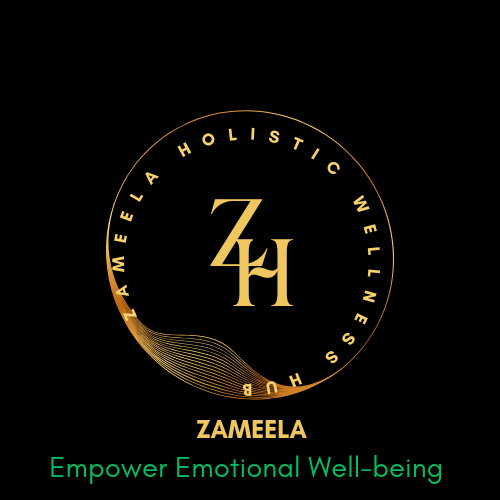Optimizing Sleep for Improved Mood and Emotional Resilience: Improve Well-being in Proven 7 Simple Steps
Unlock Calm & Resilience: Proven Steps to Optimize Sleep for Better Mood & Wellbeing
Unlock the Power of Sleep for Emotional Well-being
Ever feel like you’re running on fumes? Like your emotions are on a roller coaster, and you can’t quite seem to catch your breath? You might be surprised to learn that the key to feeling calmer, happier, and more resilient could be hiding in plain sight: your sleep.
There’s a powerful connection between sleep quality, mood, and emotional resilience. When we prioritize a good night’s rest, we unlock a significant boost in happiness and overall well-being. Science backs this up – studies show that optimizing your sleep can significantly improve your ability to regulate emotions.
Imagine feeling more in control of your reactions, less stressed and anxious, and simply better equipped to handle what life throws your way. That’s the power of a good night’s sleep for your emotional well-being.
Optimizing Sleep for Improved Mood and Emotional Resilience:
The Sleep-Emotion Connection: A Brain Balancing Act
Ever wonder why you feel irritable or down after a restless night? It’s not just your imagination. Sleep plays a crucial role in how our brains process and regulate emotions. Think of it like a balancing act!
During sleep, our brains are busy consolidating memories and processing information from the day. This includes emotions we’ve experienced. When we get quality sleep, this process works smoothly, supporting the brain’s reward system and promoting positive emotions.
However, when sleep is disrupted, this delicate balance gets thrown off. Sleep disturbances can negatively impact our mood, making us feel more prone to anxiety and less emotionally stable. Imagine trying to balance on a wobbly tightrope – that’s what your emotional state can feel like without enough sleep.
Optimizing Sleep for Improved Mood and Emotional Resilience:
7 Proven Steps to Optimize Sleep for Improved Mood and Resilience
Step 1: Set a Consistent Sleep Schedule – Your Body’s Rhythm Buddy

Just like most things in life, our bodies thrive on routine. Think of it like your favorite song – it has a rhythm, a predictable pattern that makes it enjoyable. Our sleep needs a similar rhythm too! Establishing a consistent sleep schedule is like giving your body a reliable rhythm buddy.
Imagine setting a regular bedtime and wake-up time, even on weekends. This consistency helps regulate your internal clock, which is like the conductor of your sleep-wake cycle. When your internal clock is on point, it tells your body exactly when it’s time to wind down and when it’s time to wake up feeling refreshed. This, in turn, contributes to much better sleep quality.
But the benefits don’t stop there! A consistent sleep schedule also translates to a happier and more emotionally stable you. When your body gets the rest it craves, it’s better equipped to handle daily stresses and challenges. Plus, a predictable sleep routine can help you fall asleep faster and wake up feeling more energized – a win-win for your emotions and overall well-being!
Optimizing Sleep for Improved Mood and Emotional Resilience:
7 Proven Steps to Optimize Sleep for Improved Mood and Resilience
Step 2. Create a Relaxing Sleep Environment
Imagine a calming retreat, a place where worries melt away and relaxation sets in. That’s exactly what your bedroom should be for sleep – a personal sleep sanctuary! But how do you transform your bedroom from just a room with a bed to a sleep oasis that promotes restful slumber?
Here are some tips to create a relaxing sleep environment:
- Light it right: Darkness is your friend when it comes to sleep. Light disrupts the production of melatonin, a hormone that signals sleepiness. Keep your bedroom dark by using blackout curtains or an eye mask.
- Cool it down: Think of your bedroom as your personal sleep cave (without the bats, of course!). Aim for a comfortable temperature, ideally between 60-67°F (15.5-19.4°C). A cooler environment helps your body regulate its temperature naturally during sleep.
- Quiet matters: Noise can be a major sleep disruptor. Minimize noise distractions by using earplugs or a white noise machine. White noise can help mask other sounds and create a more peaceful sleep environment.
- De-clutter for peace: A cluttered space can feel overwhelming and make it harder to relax. Tidy up your bedroom and remove anything that doesn’t contribute to sleep. This includes electronics, work materials, and even workout clothes. Aim for a clean and organized space that promotes a sense of calm.
- Soothing scents: Consider incorporating calming scents like lavender or chamomile. You can use essential oil diffusers, sprays, or even scented sachets placed around the room (but not directly on bedding to avoid fire hazards).
- Invest in comfort: Make sure your mattress and pillows are comfortable and supportive. A good quality mattress can significantly improve your sleep quality.
By creating a relaxing sleep environment with these tips, you’re setting yourself up for a better night’s rest. Remember, a good night’s sleep is an investment in your emotional well-being. When you wake up feeling refreshed and rested, you’ll be better equipped to handle daily stresses and navigate life with a calmer and more positive outlook.
Optimizing Sleep for Improved Mood and Emotional Resilience:
7 Proven Steps to Optimize Sleep for Improved Mood and Resilience
Step 3. Implement Relaxation Techniques Before Bed
Just like a computer needs to shut down before restarting, our minds and bodies benefit from a winding-down period before sleep. This pre-sleep ritual helps ease us from the day’s activities and prepares us for a restful night. Here’s where relaxation techniques become your allies!
Techniques for Optimizing Sleep for Improved Mood and Emotional Resilience:
These techniques are simple practices that can significantly improve your sleep quality by calming your mind and promoting relaxation. Some popular options include:
Meditation:
Imagine a quiet space where you focus on your breath and let go of worries. That’s the essence of meditation. There are many guided meditations available online or through apps, some specifically designed to promote sleep. Even a few minutes of mindful breathing can make a big difference.
Deep Breathing Exercises:
Ever notice how your breath gets shallow when you’re stressed? Deep breathing exercises help counteract this. Try slow, deep breaths, focusing on filling your belly with air before slowly exhaling. This simple practice can activate your body’s relaxation response and prepare you for sleep.
Progressive Muscle Relaxation:
This technique involves tensing and relaxing different muscle groups throughout your body. As you tense and release each muscle group, focus on the feeling of relaxation spreading through your body. This practice can help release physical tension that might be keeping you awake.
Light Yoga or Stretching:
Gentle yoga poses or stretches can also help ease tension and promote relaxation before bed. Focus on slow and mindful movements and avoid anything too strenuous that might energize you.
Reading a Book:
Curl up with a good book! Reading can be a great way to unwind and distract yourself from worries. However, opt for a physical book rather than an e-reader, as the blue light emitted from electronic devices can disrupt sleep.
Warm Bath or Shower:
Taking a warm bath or shower about an hour before bed can be a relaxing pre-sleep ritual. The warm water helps your body temperature drop slightly after you get out, which can signal to your body that it’s time for sleep. Plus, the act of taking a bath can be a calming way to unwind.
Dim the Lights:
Exposure to bright light suppresses melatonin production, the hormone that regulates sleep. Dim the lights in your bedroom about an hour before bed and avoid using electronic devices that emit blue light. This will signal to your body that it’s time to wind down and prepare for sleep.
Remember, the key is to find relaxation techniques that work best for you. Experiment with different options and see what helps you feel calm and prepared for a good night’s sleep. By incorporating these practices into your pre-sleep routine, you’ll be setting yourself up for a more peaceful night’s rest and ultimately, a happier and more emotionally resilient you.
Optimizing Sleep for Improved Mood and Emotional Resilience:

7 Proven Steps to Optimize Sleep for Improved Mood and Resilience
Step 4. Manage Stress During the Day
Let’s face it, life can be stressful. But did you know that chronic stress can wreak havoc on your sleep quality? When we’re constantly feeling overwhelmed, it can be difficult to unwind and drift off to sleep. The good news is effective stress management strategies can significantly improve your sleep. Here are some tips to help you tame the daily grind and promote better sleep:
- Exercise Regularly: “Exercise is a stress reliever and mood booster,” says Dr. Michael Bruce, a leading sleep expert. Aim for at least 30 minutes of moderate intensity exercise most days of the week. However, avoid strenuous workouts close to bedtime, as they can be stimulating.
- Practice Mindfulness: Mindfulness is about being present in the moment and letting go of worries about the past or future. Techniques like meditation and mindful breathing can help you manage stress in a healthy way.
- Schedule “Me Time” Make time for activities you enjoy, whether it’s reading a book, taking a bath, spending time in nature, or connecting with loved ones. Prioritizing these moments of relaxation can help your de-stress and recharge.
- Learn to Say No: Don’t overload your plate with too many commitments. Saying no to things that are draining your energy can significantly reduce stress levels.
- Challenge Negative Thoughts: Stress often stems from negative thought patterns. Challenge these thoughts by reframing them in a more positive light.
- Limit Caffeine and Alcohol: While both substances might seem relaxing in the short term, they can disrupt sleep quality in the long run.
Remember:
- Create a Daily Relaxation Ritual: Develop a calming routine before bed that helps you unwind and signal to your body that it’s time to sleep.
- Seek Support: Don’t be afraid to seek professional help if you’re struggling to manage stress on your own. A therapist can teach you effective coping mechanisms and support you on your journey towards a calmer and healthier life.
By incorporating these stress management strategies into your daily routine, you’ll be better equipped to handle life’s challenges and ultimately, achieve better sleep quality. This, in turn, will lead to improved emotional well-being and a more resilient you.
Optimizing Sleep for Improved Mood and Emotional Resilience:
7 Proven Steps to Optimize Sleep for Improved Mood and Resilience
Step 5. Limit Stimulants and Screen Time Before Bed
Sometimes, even with the best intentions, there are things we do unknowingly that can disrupt our sleep quality. Here’s where understanding sleep disruptors comes in. By limiting certain substances and activities before bed, you can create a more sleep-friendly environment:
Caffeine:
- The Culprit: That afternoon cup of coffee or evening tea might seem harmless, but caffeine is a stimulant that can interfere with sleep.
- The Impact: Caffeine can stay in your system for several hours, making it harder to fall asleep and stay asleep.
- The Advice: Experts recommend avoiding caffeine for at least 4-6 hours before bedtime.
Alcohol:
- The Myth: A nightcap might seem like a way to unwind, but alcohol can disrupt sleep quality.
- The Reality: While alcohol might make you feel drowsy initially, it disrupts sleep cycles later in the night, leading to fragmented sleep and decreased quality.
- The Advice: If you do choose to drink alcohol, limit your intake and avoid it close to bedtime.
Blue Light:
- The Source: The blue light emitted from electronic devices like smartphones, tablets, and laptops can disrupt your sleep cycle.
- The Science: Blue light suppresses the production of melatonin, a hormone that regulates sleep.
- The Solution: Dim the lights in your bedroom an hour before bedtime and avoid using electronic devices close to sleep. Consider using blue light filters or night-time mode settings on your devices.
Additional Tips:
- Limit Heavy Meals Before Bed: A heavy meal can cause indigestion and make it difficult to sleep comfortably. Opt for a light, healthy dinner a few hours before bedtime.
- Avoid Sugary Snacks Close to Sleep: Sugar can give you a temporary energy boost, followed by a crash that can disrupt sleep.
By being mindful of these sleep disruptors and making small adjustments to your pre-bed routine, you can significantly improve your sleep quality. Remember, a good night’s sleep is crucial for emotional well-being. When you’re well-rested, you’ll be better equipped to handle stress, manage your emotions effectively, and navigate life with a more positive outlook.
Optimizing Sleep for Improved Mood and Emotional Resilience:
7 Proven Steps to Optimize Sleep for Improved Mood and Resilience
Step 6. Address Underlying Anxiety Disorders
While the previous steps offer powerful tools to optimize sleep, it’s important to acknowledge that sometimes, underlying conditions like anxiety disorders can significantly disrupt sleep quality. Here’s what you need to know:
The Connection:
- Anxiety and Sleep Go Hand in Hand: People with anxiety disorders often experience difficulty falling asleep, staying asleep, or both.
- The Cycle: The worry and stress associated with anxiety can make it hard to quiet your mind and relax, leading to sleep problems. In turn, poor sleep can worsen anxiety symptoms, creating a vicious cycle.
Seeking Professional Help:
- Don’t Suffer in Silence: If you suspect an anxiety disorder might be affecting your sleep, seeking professional help is crucial.
- Benefits of Therapy: A therapist can equip you with strategies to manage your anxiety and improve sleep quality. This may involve cognitive behavioral therapy (CBT), relaxation techniques, or medication in some cases.
Here are some resources to get you started:
- National Institute of Mental Health (NIMH): https://www.nimh.nih.gov/health/topics/anxiety-disorders
- Anxiety and Depression Association of America (ADAA): https://adaa.org/
Remember:
- Early Intervention is Key: Addressing anxiety early on can prevent sleep problems from worsening and improve your overall well-being.
- Your Well-being Matters: Don’t hesitate to seek professional help for anxiety or sleep concerns. A qualified therapist can guide you towards a healthier and happier life.
By addressing underlying anxiety and prioritizing good sleep habits, you can break the cycle and achieve a more peaceful night’s rest. This ultimately contributes to improved emotional resilience and overall well-being.
Optimizing Sleep for Improved Mood and Emotional Resilience:
7 Proven Steps to Optimize Sleep for Improved Mood and Resilience
Step 7. Celebrate Small Wins and Practice Self-Compassion
Your Journey to Better Sleep
Optimizing sleep is a journey, not a destination. There will be nights where sleep eludes you, and that’s okay! Here are some tips to navigate this journey with a positive and self-compassionate mindset:
Celebrate Small Wins:
- Every Step Counts: Acknowledge and celebrate even small improvements in your sleep quality. Did you fall asleep 15 minutes earlier than usual? Great! Did you wake up feeling slightly more refreshed? Celebrate!
- Focus on Progress: It’s easy to get discouraged if you don’t see immediate results. Instead, focus on the overall progress you’re making. Track your sleep patterns in a journal and look for trends over time.
- Reward Yourself: Positive reinforcement is key! Set small goals and reward yourself for achieving them. This could be anything from a relaxing bath to reading a favorite book before bed.
Practice Self-Compassion:
- Be Kind to Yourself: Don’t beat yourself up if you have a bad night’s sleep. Everyone experiences occasional sleep disruptions.
- Acceptance is Key: Accept that there will be setbacks along the way. The key is to learn from them and get back on track with your sleep routine.
- Focus on Self-Care: Prioritize activities that promote relaxation and well-being. This might include taking a yoga class, spending time in nature, or simply taking a warm bath.
Remember:
- Change Takes Time: Building healthy sleep habits takes time and effort. Don’t get discouraged if you don’t see results overnight.
- Be Patient: Be patient with yourself throughout this process. Celebrate your progress, big and small, and focus on cultivating self-compassion.
- You’ve Got This: Believe in yourself and your ability to improve your sleep. With consistent effort and a positive mindset, you can achieve a more restful night’s sleep and ultimately, a happier and more emotionally resilient you.
By celebrating your progress and practicing self-compassion, you’ll create a more positive and sustainable approach to sleep improvement. This, in turn, will set you up for success in creating lasting changes that benefit your emotional well-being and overall health.
Optimizing Sleep for Improved Mood and Emotional Resilience –
Unlock a Calmer, More Resilient You: A Recap of Our 7 Powerful Sleep Steps
Did you know a good night’s sleep is like magic for your mood and emotions? It’s true! Optimizing your sleep can significantly boost your happiness and emotional well-being. Here’s a quick recap of the 7 powerful steps we covered to help you achieve restful sleep and a calmer you:
- Set a Consistent Sleep Schedule: Just like your favorite song has a rhythm, so does your sleep! Aim for a regular bedtime and wake-up time, even on weekends, to regulate your internal sleep clock.
- Craft Your Sleep Sanctuary: Transform your bedroom into a sleep oasis! Darkness, a cool temperature, and minimal noise distractions are key. Consider calming scents, comfortable bedding, and a tidy environment for ultimate relaxation.
- Unwind Before Bed: Power down for a peaceful night’s sleep with calming practices like meditation, deep breathing exercises, or gentle yoga stretches. Reading a book or taking a warm bath can also be great pre-sleep rituals.
- Tame the Daily Grind: Chronic stress wreaks havoc on sleep. Manage stress effectively with daily exercise, mindfulness practices, saying no to extra commitments, and limiting caffeine and alcohol before bed.
- Power Down for Restful Sleep: Avoid sleep disruptors like caffeine, alcohol, and blue light from electronic devices close to bedtime. Opt for a light dinner and avoid sugary snacks that can disrupt your sleep cycle.
- Address Underlying Anxiety: If anxiety is affecting your sleep, don’t hesitate to seek professional help. Therapy can equip you with strategies to manage anxiety and improve sleep quality for a more restful night.
- Celebrate Small Wins & Embrace Self-Compassion: Improving sleep takes time. Celebrate even small victories and be kind to yourself if you have a bad night. Prioritize self-care activities and focus on progress, not perfection.
By following these simple yet powerful steps, you can create a foundation for better sleep, ultimately leading to a happier, calmer, and more emotionally resilient you. Sweet dreams!
The Ripple Effect of Improved Mood and Emotional Resilience

Imagine waking up feeling refreshed and energized, ready to tackle the day with a positive outlook. That’s the power of a good night’s sleep! But the benefits go far beyond just feeling good in the morning. Here’s how getting enough quality sleep can create a positive ripple effect throughout your life:
Boosting Life Satisfaction and Well-being:
When you’re well-rested, you simply enjoy life more. You have more energy to engage in activities you love, connect with loved ones, and pursue your goals. This overall sense of fulfillment and satisfaction contributes to a greater sense of well-being.
The Power of Positive Emotions:
Sleep quality plays a significant role in regulating emotions. When you’re well-rested, you’re more likely to experience positive emotions like happiness, joy, and gratitude. These positive emotions have a domino effect, influencing your outlook on life, your interactions with others, and your overall well-being.
Stress Management and Physical Health:
Chronic stress takes a toll on both your mental and physical health. But here’s the good news: getting enough sleep can help you manage stress more effectively. When you’re well-rested, you’re better equipped to handle challenging situations with a calmer and more focused mind. Additionally, sleep is crucial for physical health. During sleep, your body repairs tissues, strengthens your immune system, and regulates hormones that impact everything from metabolism to blood pressure.
Building Emotional Resilience:
Life throws curveballs. But when you prioritize sleep, you’re building your emotional resilience – your ability to bounce back from challenges and navigate difficult situations. A good night’s sleep allows you to process emotions effectively, cope with stress more constructively, and maintain a positive outlook even when faced with adversity.
In essence, sleep is a cornerstone for both emotional well-being and physical health. By optimizing your sleep, you’re creating a ripple effect that positively impacts every aspect of your life. You’ll find yourself feeling calmer, more positive, and better equipped to handle whatever life throws your way. So, prioritize your sleep – it’s an investment in a happier, healthier, and more resilient you!
Conclusion: Sleep – Your Gateway to a Happier, Healthier You
In today’s fast-paced world, sleep often gets pushed to the back burner. But as we’ve explored, prioritizing sleep isn’t a luxury – it’s a non-negotiable investment in your emotional and psychological well-being.
Remember, a good night’s sleep is like magic for your mood, resilience, and overall health. By getting enough quality sleep, you’re empowering yourself to:
- Manage emotions effectively: When you’re well-rested, you’re better equipped to regulate your emotions, experience more positivity, and navigate challenges with a calmer mind.
- Boost your resilience: Sleep fuels your emotional strength, allowing you to bounce back from setbacks and cope with stress more constructively.
- Enhance your physical health: Sleep is crucial for your body’s repair and rejuvenation processes, impacting everything from your immune system to your metabolism.
- Live a more fulfilling life: With better sleep comes more energy, focus, and motivation to pursue your goals and enjoy the activities that bring you joy.
The journey to better sleep is a personal one. Celebrate your progress, big or small, and be kind to yourself if you have setbacks. Remember, self-compassion is key!
Taking control of your sleep is taking control of your well-being. So, put yourself first, prioritize your sleep, and unlock a happier, healthier, and more fulfilling life. Sweet dreams!
Make Sleep a Priority for a Brighter You!
Ready to unlock the power of sleep for a happier, healthier you? Here’s what you can do:
- Start small: Choose one or two of the sleep optimization tips from this article and begin incorporating them into your routine.
- Track your progress: Keep a sleep journal to monitor your sleep patterns and celebrate your improvements.
- Share the knowledge: Spread the word about the importance of sleep! Talk to friends and family about the benefits and encourage them to prioritize their sleep hygiene.
We want to hear from you!
Leave a comment below and share your experiences with sleep optimization. What tips have worked wonders for you? What challenges do you face? Let’s create a supportive community where we can learn from each other and prioritize sleep for a better tomorrow.
Together, let’s make sleep a non-negotiable investment in our well-being!
Frequently Asked Questions
How long does it take to see improvements in mood and emotional resilience by optimizing sleep?
The time it takes to notice improvements can vary from person to person. Many people report feeling more rested and emotionally stable within just a few days of prioritizing better sleep habits. However, building long-term emotional resilience through sleep optimization often takes several weeks or months of consistent practice. Be patient with yourself and focus on making gradual, sustainable changes.
What if I have trouble falling asleep even after implementing these strategies?
If you find yourself still struggling with insomnia despite your best efforts, don’t hesitate to seek professional help. A sleep specialist or therapist can assess any underlying issues and develop a personalized treatment plan. Cognitive-behavioral therapy (CBT) has been shown to be highly effective in treating insomnia and improving sleep quality long-term.
How can I involve my partner or family in my sleep optimization journey?
Getting your loved ones on board can make the process more enjoyable and sustainable. Have an open conversation about your goals and enlist their support. For example, your partner can help create a relaxing sleep environment by keeping the bedroom dark and quiet. Family members can encourage you to stick to a consistent sleep schedule and engage in relaxing activities together before bed.
What if I experience setbacks or have a few bad nights of sleep?
It’s completely normal to have occasional setbacks in your sleep optimization journey. Don’t beat yourself up about it. The key is to learn from these experiences and get back on track. Reflect on what might have contributed to the poor sleep and adjust your strategies accordingly. Most importantly, practice self-compassion. Celebrate your progress, even if it’s small, and remember that every step towards better sleep is a step in the right direction.
Source Links:
Here are some relevant source links that could be used to support the information in the article:
- https://www.ncbi.nlm.nih.gov/pmc/articles/PMC6126303/ – The link between sleep quality and emotional regulation
- https://www.sleepfoundation.org/sleep-hygiene – Tips for improving sleep quality and creating a relaxing sleep environment
- https://adaa.org/tips – Strategies for managing stress and anxiety
- https://www.health.harvard.edu/blog/blue-light-has-a-dark-side-2018052313953 – The impact of blue light on sleep quality
- https://www.sleepfoundation.org/circadian-rhythm – The importance of consistent sleep schedules for emotional well-being
- https://adaa.org/finding-help – When to seek professional help for sleep problems and mental health concerns


